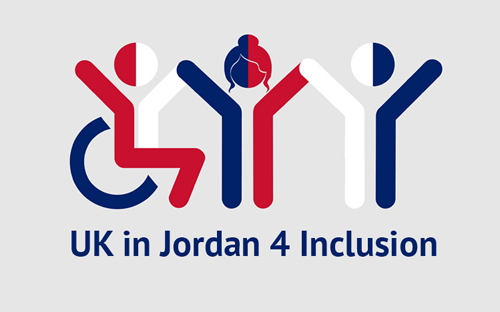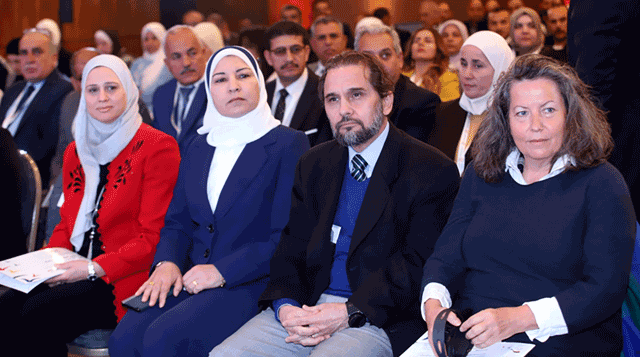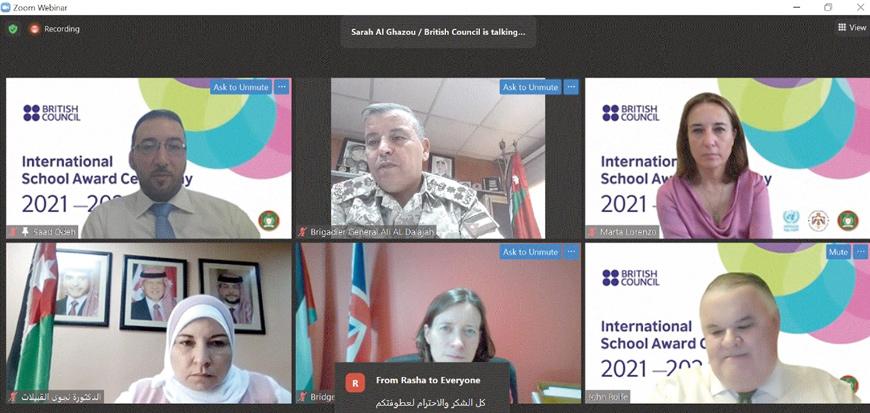You are here
Females, children with disabilities face obstacles to education, conference participants say
By Laila Azzeh - Feb 16,2017 - Last updated at Feb 16,2017

Education Minister Omar Razzaz attends a session at the conference ‘Building Inclusive Classrooms’ organised by the British Council in Amman on Thursday (Petra photo)
AMMAN — Quality education for all children, regardless of gender, financial situation or disability, should be the primary aim of Middle East and North Africa (MENA) countries, experts agreed on Thursday.
Inclusive education — one that embraces all students and enables them to develop their critical thinking, and innovative and problem-solving skills — was the focus of a regional conference held by the British Council.
The three-day event, titled “Building Inclusive Classrooms”, began on Thursday and aims to provide a platform for experts from across the MENA to discuss the challenges to achieving inclusivity in education particularly discrimination based on gender, socio-economic background and disability.
Policy makers from Jordan, Lebanon, Egypt, Iraq, Palestine and the UK are taking part in the event, which aims to support teachers and school leaders to further develop effective and inclusive practices by providing high quality, ongoing professional development services.
The conference is part of the 2015-2018 Building Inclusive Classrooms joint initiative, funded by the British Council and the UK’s Department for International Development.
The goal of the £34 million (around JD30 million) programme is to reach out to more than 3,500 schools and 4,000 educators.
During Thursday’s opening ceremony, attended by Education Minister Omar Razzaz, British Council Regional Director Adrian Chadwick noted that the programme equips educators with the necessary skills and knowledge to enhance sustainable development, human rights and equality.
He added that it also entrenches cultures of peace, global citizenship and cultural diversity, stressing the council’s commitment to cooperating with local and regional stakeholders in order to ensure that all children have access to high quality education.
So far, a total of 28,000 teachers have received training under the project, according to the British Council.
Related Articles
AMMAN — The British embassy in Amman is launching a month-long campaign “UK in Jordan 4 Inclusion” to celebrate and highlight the importance
AMMAN — Under the patronage of HH Prince Mired, president of the Higher Council for the Rights of Persons with Disabilities, the Ministry of
AMMAN — The British Council celebrated the achievement of the Jordanian schools participating in the International School Award as part of t



















